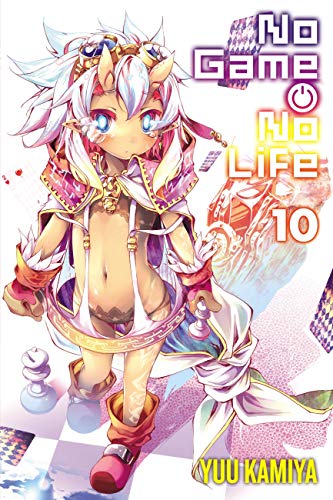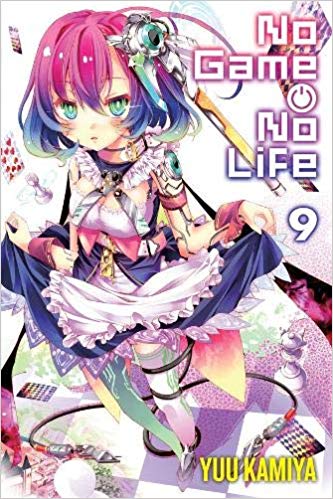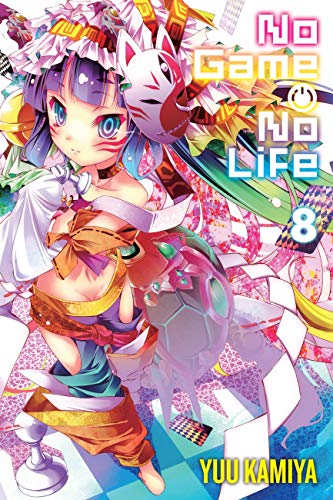By Yuu Kamiya. Released in Japan by MF Bunko J. Released in North America by Yen On. Translated by Daniel Komen.
This volume begins with our heroes, [ ], having abdicated the throne (the country is now ruled by the business class, with Steph reduced to talking to potted plants – and Plum, who is about as helpful as one) and living life as sellers of medicine. In particular, their breast enhancer, although temporary, is quite popular. It also attracts the attention of the Dwarves, one of the few races we haven’t really dealt with yet, and they summon Sora and Shiro to their underground city to throw down. Fortunately, our heroes have a new dwarf ally, Tilvilg. Unfortunately, she lacks the natural genius ability that all dwarves have, and is somewhat beaten down that their answer to that seems to be “well, just keep trying anyway while we pity and belittle you”. Can Sora and Shiro show that her desire to see the sky is not merely a baseless fantasy? And, more importantly for the author, can they do it while throwing in so many references to boobs that the reader might throw up?
I will admit, when it comes to having your cake and eating it too, no one does it quite as well as Yuu Kamiya. This entire volume seems to be boob-obsessed, with both Chlammy (she and Fi are genuine allies in this book for once) and the dwarven leader Veig being particularly bad. And yet at the same time it goes out of its way to mock and belittle anyone who might have similar thoughts – Veig in particular dreams of the sort of pneumatic fantasy girl that only exists inside the head of virgins, something viciously pointed out by Sora. What’s more, his perverse behavior towards Tilvilg, which he brushes off as “I was drunk, it was a joke”, is noted to be “the top two excuses of male scum”. Kamiya fills his books with ludicrous and somewhat sickening fanservice… but also knows that’s all it is, and does not mistake it for anything else.
Steph does not have a large role in this book, but she is there, and her parts (as always) interested me the most. Once again, when asked to be a political thinker, she’s head and shoulders above the rest of the cast, and her confrontation with Emir-Einz, where she blackmails her into taking her to Sora and Shiro by threatening to disrupt the book’s fragile status quo, is brilliant. (It also shows that Steph is not as oblivious to her own feelings as it appears.) And, getting back to the book’s obsession with boobs once more, there’s a nice scene where Steph gets upset at the fact that Sora groped her when they first met, only for Jibril and Emir-Einz to call that “humblebragging”, pointing out to Steph that so far, of all the women in the entire series, Sora has only groped one by his own choice – her. The jealousy is searing.
In the end, of course, no one should be reading No Game No Life who is not already able to deal with its proclivities, and I’m not trying to say that they’re lessening – in fact, there was even more in this book. But the author is better at showing us the man behind the curtain, as we see that none of it really makes much of a difference in the end. This volume is about accepting your weaknesses, accepting that everyone is different, and going beyond the impossible. It’s also (not counting the unlicensed “Practical War Game” spinoff) the last book in the series to date, so we may have a while till we see Book 11.




